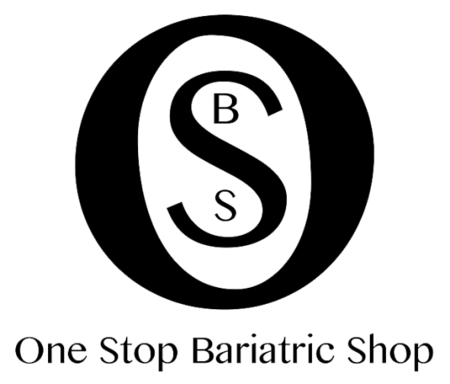
Are you having or have you had weight loss surgery (also known as bariatric surgery or metabolic surgery)? Making the decision to have surgery likely wasn’t one you made overnight, in fact you probably watched others who have had surgery and did your research. You may have spoken to others, read experiences on the surgery forums and spoken to your doctor or a few surgeons.
Weight loss surgery changes your life and you really need to be prepared for it physically, emotionally and mentally. So doing your research is important. But once you’ve done your research and got your surgeon, you may wonder if you really need to see a dietitian, especially if your surgeon hasn’t said anything about seeing one…
The simple answer is YES!
Surgery itself is simply a tool and does not guarantee you will lose weight or maintain the lost weight long-term. What you do with the ‘tool’ is going to impact long-term weight loss, maintenance and health. Dietary, lifestyle and exercise changes and habits play a crucial role in initial and long-term success and it is especially important to get these right in the first 6 months after surgery as this is often known as the ‘honeymoon’ period where you will find you have less hunger and your food portions are the smallest. If you don’t get your habits down pat during this period, it can be more difficult to make changes later (not impossible so don’t get disheartened or give up). Additionally, if you do not get sufficient protein, calcium, fibre and other nutrients this can impact muscle mass, bone, dental and bowel health among other things. Getting your nutrition right should be part of your surgery plan.
So it is highly recommended to see a dietitian even before the journey begins and throughout the journey. But not just any dietitian, you should see a dietitian experienced in working with those who have had bariatric surgery. This is a specialized field and like any specialized field, someone who works in this area for a number of years will be best suited to guide you.
But why see a bariatric dietitian…?
Here’s 5 reasons:
- They will guide you through the before and after surgery dietary phases – before and after surgery you will go through a number of dietary phases form the pre-surgery weight loss plan to fluids, purees, soft foods and finally full solids. It is essential to be consuming the correct fluids/foods as well as using the correct eating habits during these phases and while the internet has a lot of information, doing the wrong thing can have serious consequences so who wants to risk it?
- Food options & meal plans - They will be able to give you exact food options and a meal plan for each of the dietary phases so that you have variety and know exactly what you can eat. This can take the guesswork out of things and make the experience a bit more enjoyable and less stressful.
- Eating habit changes - They will discuss eating habits changes with you, letting you know changes to expect and new habits to adopt e.g. sipping fluids rather than gulping, chewing food to a liquid paste before swallowing etc
- Food groups & nutrient targets - They teach you about food groups and nutrients that you need to work towards consuming in your daily food intake so that you continue to lose weight and are healthy too. After surgery you will not be able to eat as much food as you did prior to having surgery so it is crucial to be eating the right foods and meeting nutrient targets e.g. protein, calcium, veg, fibre, fluids etc. If you don’t learn what these are and start doing this, not only will this impact long-term health but can impact weight loss & maintenance also.
- Goal setting, motivation, habit changes, assessment - They be able to work with you to help you set realistic goals, motivate you, change up your meal plan, assess if you are meeting your nutrient needs, suggest changes to your daily intake and helping you get back on track if old habits start creeping in down the track.
So if you’re planning on having surgery, seeing a dietitian beforehand and during the entire process is essential. And while it can be a bit of an additional cost, finding the right dietitian is a worthwhile investment. You are making one of the biggest changes to your body and life and while surgery is a ‘tool’ that will help you lose weight, it isn’t a miracle cure and you need to support and encourage success by making the right food choices and habit changes. A bariatric dietitian will be able to guide you through this process and help you keep healthy, meet nutrient targets and develop the habits you need not only during the weight loss period but also maintenance.
Need to find a qualified bariatric dietitian? If your surgery team doesn’t have a dietitian already or for some reason you need to find a new one, our bariatric dietitian Gloria sees people before and after surgery and consultations can be booked in clinic or over the phone, through Skype, FaceTime or other media. Visit here website for more information: Nutrition Savvy or contact her direct here: gloria@nutritionsavvy.com.au or email us for more information: info@onestopbariatricshop.com If you're looking for a qualified bariatric dietitian to see in clinic that is near you, the OSSANZ website also has a list of bariatric dietitians around Australia, click here to view their website.
Wishing you all the best on your journey!
:)

